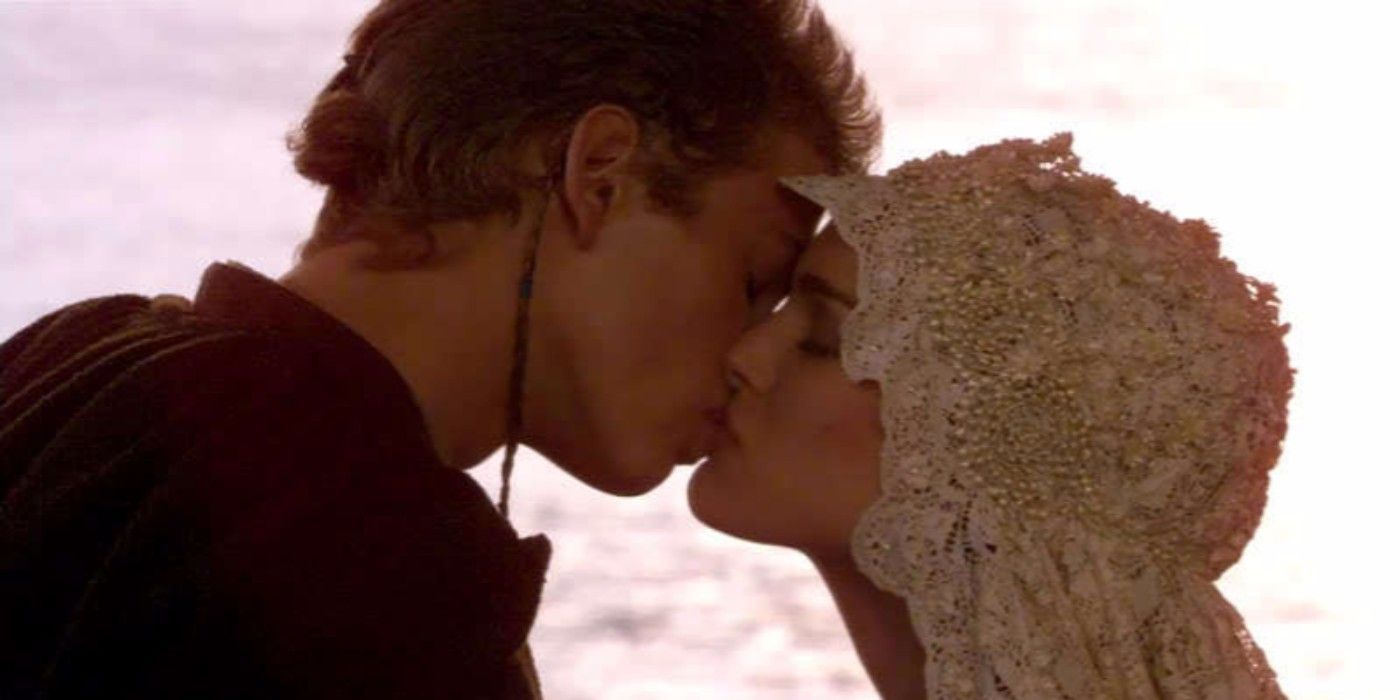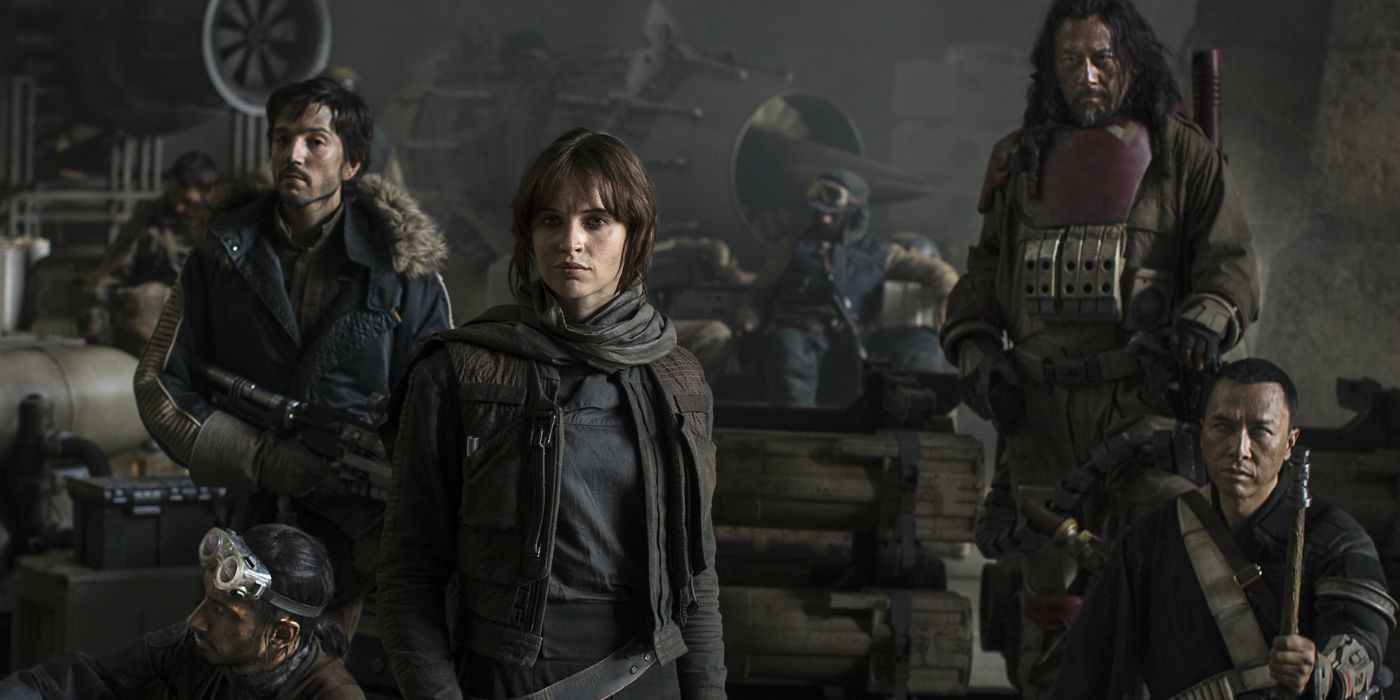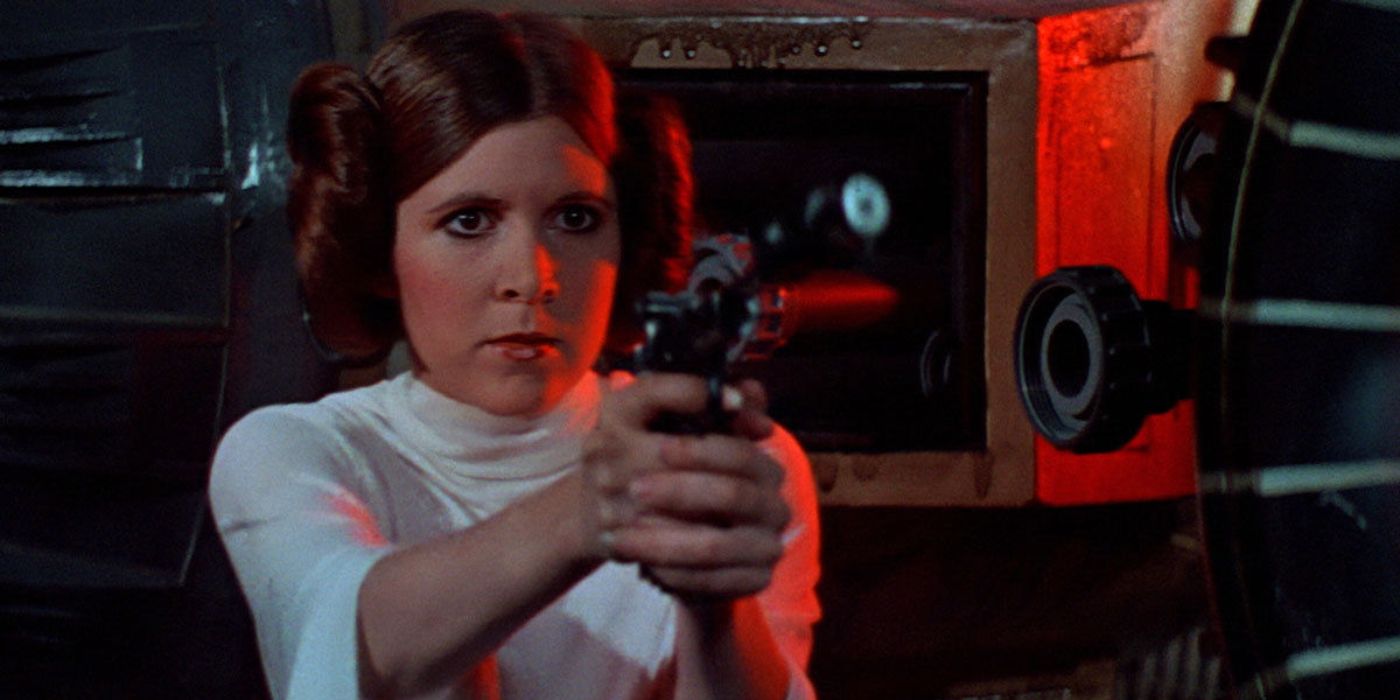
The Star Wars franchise has kept audiences coming back quite consistently over the last four decades. There have been plenty of ups and downs across the past eight films, but now it's time for this particular story to come to an end with Star Wars: The Rise of Skywalker. In anticipation of the upcoming film, the franchise's substantial fanbase has started the ritual of marathoning through the "Skywalker Saga," while newcomers have just started diving into it with the release of the Disney+ streaming service.
For all of these reasons, we believe it's a perfect time to look back at the franchise and see how it fared against the scrutinous eyes of film critics. We've ranked each live-action feature film according to its average critic score, calculated using scores from review aggregates Rotten Tomatoes and Metacritic. We will of course provide average audience scores as well, for comparison. To be clear: we are only including films that premiered in cinemas, so you won't see the Star Wars Holiday Special here. Hopefully you won't see that anywhere.

The worst of the bunch, according to critics, is the 2008 animated feature, Star Wars: The Clone Wars (directed by Dave Filoni), which attempted to help fill in the three-year gap between Attack of the Clones and Revenge of the Sith. It followed Anakin and his padawan, Ahsoka Tano, as they unraveled a plot by Count Dooku and faced his apprentice, Asajj Ventress. Though released in theaters worldwide, the film acted as a pilot of sorts for the animated series of the same name.
Star Wars: The Clone Wars was far from a critical success, with many criticizing the quality of the animation and weak script. Several critics also called the film out for being transparent as an advertisement for the series that followed. Despite the harsh reception, the film was a financial success, grossing $68.3 million from a budget of just $8.5 million. The film currently holds a critic score of 18% on Rotten Tomatoes and a score of 35 on Metacritic.
The animated film didn't fare much better with audiences either. Clone Wars currently holds an audience score of 39% on Rotten Tomatoes.

Now for the most poorly received chapter of the live-action Star Wars film saga: The Phantom Menace. Released in 1999, the film began George Lucas' prequel trilogy, introducing Anakin Skywalker as he was before he knowingly got involved with the Jedi and the Sith. It also debuted Darth Maul, a Sith lord who enthralled audiences such that the character was brought back through the expanded universe, despite being cleaved in two in the third act of the film.
Although critics acknowledged the many things that the film did well -- focusing on trade relations not being one of them -- they generally agreed that The Phantom Menace was held back by its script and the some of its characters, namely the infamous Jar Jar Binks. Episode I possesses a critic score of 54% on Rotten Tomatoes and 51 on Metacritic.
The film currently holds an audience score of 59% on Rotten Tomatoes.

The prequel trilogy had a rocky start and it didn't improve that much with the release of Episode II. The second instalment, released in 2002, continued to illustrate Chancellor Palpatine's rise to power while inching Skywalker further toward the Dark Side via the loss of his mother and a much-disliked romantic subplot between him and Padmé Amidala. The film also briefly depicted the beginning of the Clone Wars, first mentioned in A New Hope, but ultimately the event was explored through several animated works.
Much like its predecessor, critics had mixed feelings about Attack of the Clones. Several critics found the characters to be underdeveloped, the performances of the actors to be flawed and the dialogue to be riddled with cliches. Episode II currently holds a critic score of 66% on Rotten Tomatoes and 54 on Metacritic.
On Rotten Tomatoes, the film has an audience score of just 56%.

The idea of anthology films seemed like a good one until 2018's Solo: A Star Wars Story (directed by Ron Howard) hit theaters. The film explored Han Solo's growth from orphaned child on Corellia to famed smuggler. Not only did it introduce a new actor, Alden Ehrenreich, to the role, it also reintroduced Darth Maul to the film series. In so doing, it became the first Star Wars film to acknowledge the animated series.
Critics generally enjoyed what the film had to offer, even if none of it was new. The film currently holds a critic score of 70% on Rotten Tomatoes and 62 on Metacritic. Maybe it was because, as Disney CEO Bob Iger posited, the audience had had a bit too much, too fast; maybe it was because the numerous issues that took place during production marred expectations; whatever the reason, Solo failed to break even, earning just $393.2 million worldwide.
Solo: A Star Wars Story currently holds an audience score of 63% on Rotten Tomatoes.

One would think that the climactic finale of the original trilogy would have been better received than this. 1983's Return of the Jedi completed Luke Skywalker's transformation from immature moisture-farmer to wisened Jedi, providing him with the sense of hope needed to draw his father, Darth Vader, back from the Dark Side, ultimately releasing the galaxy from the clutches of the Empire.
Critics seemed to enjoy the general spirit of the film and continued to praise George Lucas for once again demonstrating a mastery of visual effects. However,the film evidently did not measure up to its predecessors in their eyes. Episode VI currently holds a critic score of 81% on Rotten Tomatoes and 58 on Metacritic.
For comparison, the film holds an audience score of 94% on Rotten Tomatoes.

One of the few films that the Star Wars fanbase can seem to agree on is 2005's Revenge of the Sith, which completed Anakin Skywalker's fall to the Dark Side, depicted the founding of the Empire and showed audiences the tragic annihilation of the Jedi Order. Fans often agree that it was this film that contained some of the saga's most poignant moments.
Critics felt similarly. Though they noted that Episode III was still riddled with flaws Lucas quickly became known for as a writer, they agree that the film was one of Lucas' best works as director. Some have even gone so far as to claim that Revenge of the Sith is the best in the saga. The film currently holds a critic score of 80% on Rotten Tomatoes and a Metacritic score of 68.
Its audience score on Rotten Tomatoes currently stands at 66%.

By 2016, the Star Wars franchise had been given new life, thanks to the first entry in the sequel trilogy. As eager as audiences were to explore the future, there were still gaps in the original story that needed to be filled. Enter Rogue One: A Star Wars Story (directed by Gareth Edwards), the first of the anthology films. The film provided an explanation for what seemed to be a plot hole in A New Hope, and gave audiences insight into how much the Rebellion had to sacrifice so that Luke could destroy the Death Star.
Rogue One opened to a wave of positive reviews. Despite criticism aimed at the short-lived characters and fan-service that populated the film, critics generally expressed that it was a thoroughly entertaining experience. Rogue One currently holds a critic score of 84% on Rotten Tomatoes and a Metacritic score of 65.
The film currently holds an audience score of 86% on Rotten Tomatoes.

After ten years, the Star Wars franchise returned to theaters with The Force Awakens (directed by J.J Abrams) in 2015. Set 30 years after the events of Return of the Jedi, the film introduced new characters -- Rey, Finn and Poe Dameron -- to the franchise while touching upon the aftermath of the Empire's collapse and the new regime rising to take its place.
The Force Awakens received critical acclaim upon release, with many praising the fresh energy that it brought to the franchise. The consensus seemed to be that the film was entertaining enough for viewers to completely ignore the fact that its narrative was essentially a repetition of A New Hope. Episode VII currently holds a critic score of 93% on Rotten Tomatoes and 81 on Metacritic.
The film holds an audience score of 86% on Rotten Tomatoes.

In 2017, The Last Jedi (directed by Rian Johnson) hit theaters. The film continued the story of Rey and Kylo Ren as they struggled to embrace what the paths they thought they were on. The second installment of the sequel trilogy also saw the true return of Luke Skywalker, depicted as a hermit living in self-imposed exile due to his failure to prevent Kylo Ren from falling to the Dark Side. The Last Jedi quickly became one of the most divisive films in the entire franchise among fans.
Critics, on the other hand, seemed to enjoy The Last Jedi immensely, praising many of the bold creative decisions made -- narrative, visual or otherwise. A number of critics predicted that the film would do well among dedicated fans, while describing it as just a satisfying experience; no more, no less. Episode VIII currently holds a critic score of 91% and 85 on Metacritic.
Needless to say, audiences felt very differently. The Last Jedi currently holds an audience score of just 44% on Rotten Tomatoes.

One of the most famous plot twists in modern cinema came from 1980's The Empire Strikes Back (directed by Irvin Kershner). The saga has arguably never been able to shock audiences that profoundly since. While in no way insignificant, that was far from the only major contribution the second Star Wars film made to pop-culture. We can't forget that it also introduced Yoda to the franchise and a memorably, near-mystical explanation of the Force, among other things.
Despite the general consensus of viewers now, the film received a mixed response from critics, who cited underdeveloped characters, comparatively poor special effects and even a lack of vitality as points of criticism. Of course, opinions have shifted drastically over the decades, with Episode V often labeled as one of the greatest films of all time. It currently holds a critic score of 95% on Rotten Tomatoes and a Metacritic score of 82.
The Empire Strikes Back currently possesses an audience score of 97% on Rotten Tomatoes.

The most well-received entry in the Star Wars franchise is of course the original that started it all: A New Hope. It was a story about three unlikely allies driven into war against the evil Empire. The 1977 film was a bold release, introducing something entirely new to cinema with its unmatched special effects and unique mythology. A New Hope helped to ignite a widespread interest in sci-fi that continues to grow decades later.
Upon release, several notable critics compared the film favorably to 2001: A Space Odyssey, praising the special effects and narrative of the film. To put it simply: George Lucas had created something revolutionary. It's no wonder that A New Hope won seven Oscars out of a total of 10 nominations. The film currently holds a critic score of 93% on Rotten Tomatoes and a Metacritic score of 90.
Episode IV currently holds an audience score of 96% on Rotten Tomatoes.
Directed and co-written by J.J. Abrams, Star Wars: The Rise of Skywalker stars Daisy Ridley, Adam Driver, John Boyega, Oscar Isaac, Lupita Nyong'o, Domhnall Gleeson, Kelly Marie Tran, Joonas Suotamo, Billie Lourd, Keri Russell, Matt Smith, Anthony Daniels, Mark Hamill, Billy Dee Williams and Carrie Fisher, with Naomi Ackie and Richard E. Grant. The film arrives on Dec. 20.